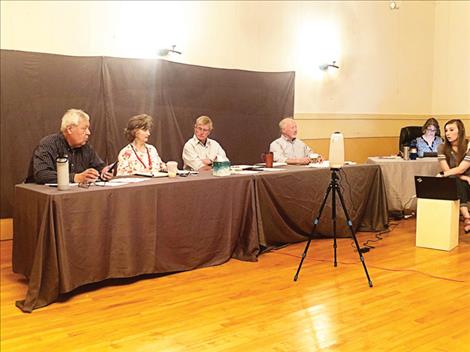Water management board authorizes new wells, answers questions
Keep Reading!
You’ve reached the limit of 3 free articles - but don’t let that stop you.
 Take extra care driving twisty roads around lakes, mountains
Take extra care driving twisty roads around lakes, mountainsIn wide-open Montana, long drives on the highway are a way of life and, often, a source of danger. The state is ranked fifth for the number of fatal accidents per resident, with 90% of those fatalities happening on road...
 Legislative Notes
Legislative Notes Over the past 40 years, Montana’s property tax burden quietly shifted from natural resource extraction and industries to homeowners. From 2003 to 2023 alone, residential property as a percentage of the total taxab...
POLSON — James Phillip Lawrence of Polson pleaded not guilty to felony charges of deliberate homicide and tampering with or fabricating physical evidence in the death of Edwin “Ed” Loder of Ronan. Lawrence was arraigned in Lake County District Court on Wednesday, Sept. 18. ...
 Cherry growers narrowly dodge labor shortage as Trump policies worry workers
Cherry growers narrowly dodge labor shortage as Trump policies worry workersLAKE COUNTY — In early July, a transformation takes place on the eastern shorelines of Flathead Lake. As the Mission Mountains loom in the background, endless groves of trees begin to display little red frui...
Send us your news items.
Use these forms to send us announcements.
Birth Announcement
Kristi Niemeyer
Chair Clayton Matt, board members Georgia Smies, Ken Pitt and Roger Noble authorized 72 of 99 domestic well applications during a June meeting of the Flathead Reservation Water Management Board at the office in Ronan.
Issue Date: 7/20/2022
Last Updated: 7/19/2022 3:43:19 PM |
By Kristi Niemeyer for the Valley Journal
You’ve reached the limit of 3 free articles - but don’t let that stop you.
Sponsored by:
© Copyright Valley Journal, Ronan, MT. All rights reserved. | Privacy Policy
| Terms of Use | Submission Guidelines
Weather data provided by 
